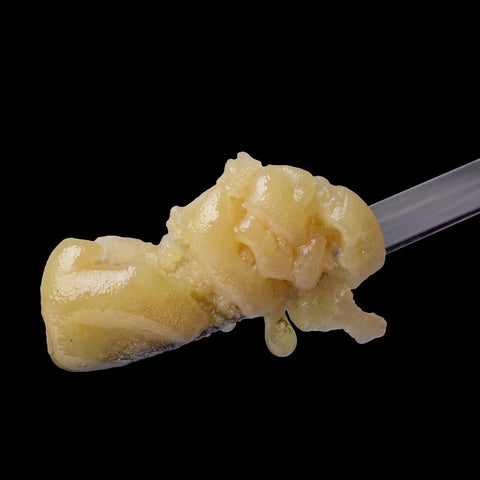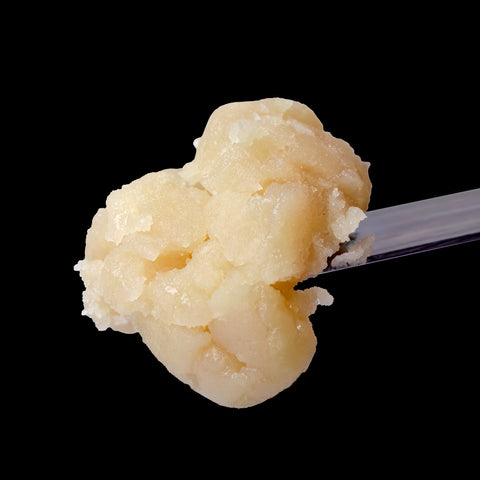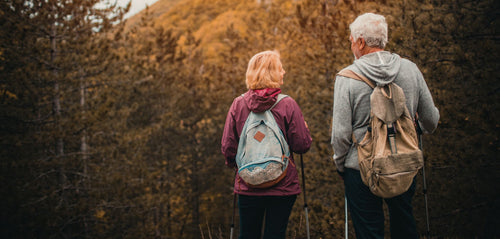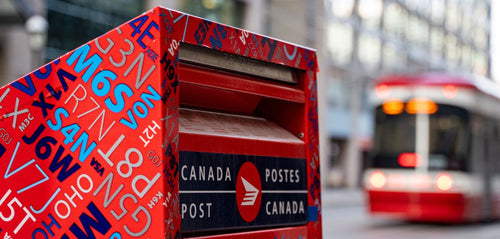#76: The Island Genetics Story: A Q&A with Zachary Chester
#76: The Island Genetics Story: A Q&A with Zachary Chester
Ladysmith, British Columbia is a picturesque town on the east coast of Vancouver Island, known for its beautiful waterfront, small-town charm and Mediterranean-like climate. It is here where Island Genetics, a cannabis cultivation company, calls home. With a focus on breeding and preserving exotic heirloom cultivars and unique hybrids, Island Genetics has been making waves in the cannabis industry for its high-quality products and innovative approach to cultivation.
Known for its no-till, living soil-grown cannabis, Island Genetics takes pride in its unique genetics library consisting of landrace strains, rare cultivars, and carefully bred hybrids. With approximately 50 heirloom strains from around the world in their library, Island Genetics is constantly pushing the boundaries of what's possible in the world of cannabis breeding.
Strains such as Panama Red and Congolese, both landrace varieties, are just a glimpse into the rare and diverse genetics that Island Genetics has to offer. Co-founders Zachary Chester and Davis Allen have worked tirelessly over the years to curate this library and their passion for preserving these unique genetics shines through in every strain they produce.
We had the opportunity to host a Q and A with Zachary Chester, CEO of Island Genetics, to learn more about the company's vision and what sets them apart from other cannabis producers.
What inspired the creation of Island Genetics and its focus on exotic heirloom genetics?

We had an interest in cannabis and tried different strains from the dispensary when Davis Allen got his medical card at the end of high school. We were particularly inspired after trying the Congolese landrace strain grown by Heavenly Daze for the Compassionate Club. This strain had a completely different profile from all the other hybrids that we were able to purchase at the time and it was unlike anything we had ever tried before. This launched our curiosity in landrace strains and trying to grow something like this for ourselves.
Can you tell us more about your genetic library and the types of strains it contains?
We have an extensive collection of landrace strains among many other mainstream hybrids. The landrace collection includes seeds from a handful of areas of South Africa (Durban, Malawi, Congolese, Swaziland, Apondo, Sotho, Zimal, Coffee Bay etc.), South Asia (areas of Thailand and South India), the Middle East (Afghanistan, Kyber Valley, Balk, Pakistan, Egypt, Tirah) and South/ Central America (Panama Red, Columbia and strains from Mexico).
We have had the leaf samples of several of these landrace strains genetically tested in the past by Lighthouse Geonomics which scanned 42,000 snips of the DNA and put that in a Phylos map against many other commercial hybrids. The genetic attributes of these strains sat far outside any relation to anything that they had tested before. The Congolese sat the furthest outside the norm which is interesting because another strain called Red Congo which is supposed to be a Congolese hybrid was in this same Phylos map and it sat in the middle more genetically related to the mainstream hybrids.
How do you source your genetics from around the world, and what challenges do you face in doing so?

We worked with some preservation seed banks that were trying to keep these landrace genetics in these areas alive and free of hybridization. Many of these organizations don't exist anymore. We also worked with some researchers and enthusiasts who travelled the world collecting landrace seeds. We would buy whatever we could get our hands on.
It was very challenging sourcing these seeds because it was not legal to ship them over to Canada. Many packages in the past got confiscated in the mail so we had to start getting more creative. We used local seed banks at times to bring stuff in for us and they got shut down while we had parcels coming in and we were not able to retrieve them.
Can you speak of your no-till, living soil cultivation methods and why you chose to use this approach?
We have tried many different styles of cultivation over the years in our small ACMPR facility. We found the quality of flower that came from organic living soil cultivation was far superior to anything that we grew using salt-based nutrients. We ran trials growing the same strain side by side in the same room with one in a soil bed and the other in a drain-to-waste hydroponic setup. It was quite interesting to see how different the flower was from both systems. The hydroponic flower was larger in size but had less aroma and was less caked in trichomes vs the flower from the soil bed. I also liked the taste more from the flower in the soil bed. As we did these trials it became very clear to us that the living soil cultivation was the path that we wanted to go down to achieve a higher ceiling for product quality.

Our no-till living soil regime is the heart and soul of our operation. Our regimen has continued to evolve over the years. We have worked with various soil consultants and recently engaged with some brilliant consultants in the United States who have extensive experience with living soil cultivation for cannabis in regulated markets. This has taught us to take a more data-driven scientific approach to living soil cultivation which has brought our game up to a completely new level that I never thought was possible. It has been both exciting and humbling to learn from different people to take this type of cultivation to the next level and innovate the way people are growing organically.
Our system involves compost inoculants, dry amendment mineral applications and water-soluble mineral liquid feeds. We measure everything in-house - from soil biology, soil mineral chemistry and mineral chemistry of our liquid feeds to ensure we have a full insight into what is going on. Our system is heavily focused on maintaining targeted biology and balanced mineral chemistry in our soil beds.
How do you prioritize sustainability in your cultivation methods?
We grow organically with a style of living soil cultivation called no-till. This style of farming involves replanting in the same large soil bed and not disturbing or changing the soil. We test and maintain our beds to ensure we can keep farming in them without variation from crop to crop. We re-amend the soil on a regular basis based on what minerals have been depleted from the plants.
Our farming practices create no waste. We do not have to buy consumables that go in the garbage after a crop has been finished like rock wool cubes, coco bags, drip lines etc. We don't have any nutrient runoff that goes into drains. Any leftover compost inoculant or liquid feed goes into our organic vegetable garden outside our facility.

Our inputs are all organic which is very different from the salt-based nutrients that 99% of the industry uses to feed their crops. Our nutrients are a mixture of naturally mined minerals, fermented and non-fermented waste products from the ocean and plant-based fermented products.
We don't use any chemicals or pesticides on our farm.
Although we are an indoor farm, all of our lighting is LED which uses far less energy.
How do you approach breeding for medical and wellness purposes versus just focusing on high THC content?
We don't breed for medical purposes per se. We have found that some of these unique landrace strains that we have grown in the past have a mixed set of cannabinoids rather than just THC which offer effects that provide more medical relief over recreational enjoyment.
Can you walk us through your curing process and why it's important in producing high-quality cannabis?
We hang dry our plants at harvest for a minimum of 2 weeks at 60% humidity and 60 degrees Fahrenheit and trimmed hand-trimmed. Our cannabis is hand-trimmed and then further cured in specialized curing bags for another 3 weeks. We have found the best results in curing are with smaller amounts of cannabis in a smaller bag. We cure with 2-4 lbs per bag so the cannabis inside has a chance to evenly disperse moisture across all the buds in the bag. I find when you start to use too large of a container you get inconsistencies in moisture dispersion of the buds and have less control of the cure. More bags is more work but it provides a more consistent product so it's a no-brainer for us.
The dry and cure are important but in my experience, they make up part of the equation on the quality and taste of the product. They are more responsible for the maintenance of the terpenes and providing an ideal moisture content in the end product. The majority of the taste and ash colour comes from the quality and choice of the inputs and the mineral balance of the feeds as you near harvest.
Your first two products, El Chapo and Cake City live rosin, have finally launched. Can you tell us more about them?
We have been growing these strains for dried flower under contract for international distributors for the medical markets in Europe and Australia. For each crop, we have taken some of the flower at harvest and frozen it to make bubble hash in the future. We were lucky that both these cultivars washed fairly well, some other strains didn't wash at all.
Cake City is a very nice cake strain with very dense buds and a rich doughy and fruity taste. The rosin has a very sweet dessert-like taste with some fruit on the palate. The flower from this strain has been a staff favourite.
El Chapo is an old-school style kush strain with sweet and sour gassy notes. The flower has an oilier texture and this has passed on to the rosin giving it a wetter consistency than the Cake City. You get some gas, pine and kush notes on the exhale of the rosin.
How do these products reflect the Island Genetics brand and its values?
Although these strains are commercial cannabis strains and not exotics they are grown in our proprietary living soil system and the rosin is made to the highest standards (fresh frozen flower, washed in small batches and cold cured for 2 weeks). These two products provide a starting benchmark for the type of quality products that we want to produce for the domestic market.
These products truly represent the strains that they are made from and contain the rich smooth taste that consumers will begin to expect from Island Genetics.
What can we expect to see from Island Genetics in the future in terms of new products or developments?
We will be launching some flower SKUs very soon in different formats and we are currently trialling some different strains for new hash rosin SKUs. We will be releasing some more unique fruity hash-focused genetics in the coming months.
As the market matures and THC content becomes less of a purchase decision for the premium flower market, we will start launching some of our landrace strains and landrace hybrids into the domestic market as dried flower.
We have been considering a pre-roll and a hash rosin-infused pre-roll product to add to the catalogue but aren't sure if we will proceed with these at this time.
Can you share any exciting developments or upcoming projects that we can look forward to from Island Genetics?
We will be bringing 2 new flower rooms online in our facility soon which will allow us to grow some more strains and supply more variety of hash rosin and flower SKUs to the domestic and international market.
We are pheno-hunting new genetics that work well for both hash rosin and flower so we can have some more flavours available for our customers and change things up to keep offering new varieties.
We are doing some interesting research with a Simon Fraser University professor on organic living soil and HLVD virus. We might be on the cutting edge of new information on biology in living soil and the suppression of the HLVD virus.
Back to all posts












